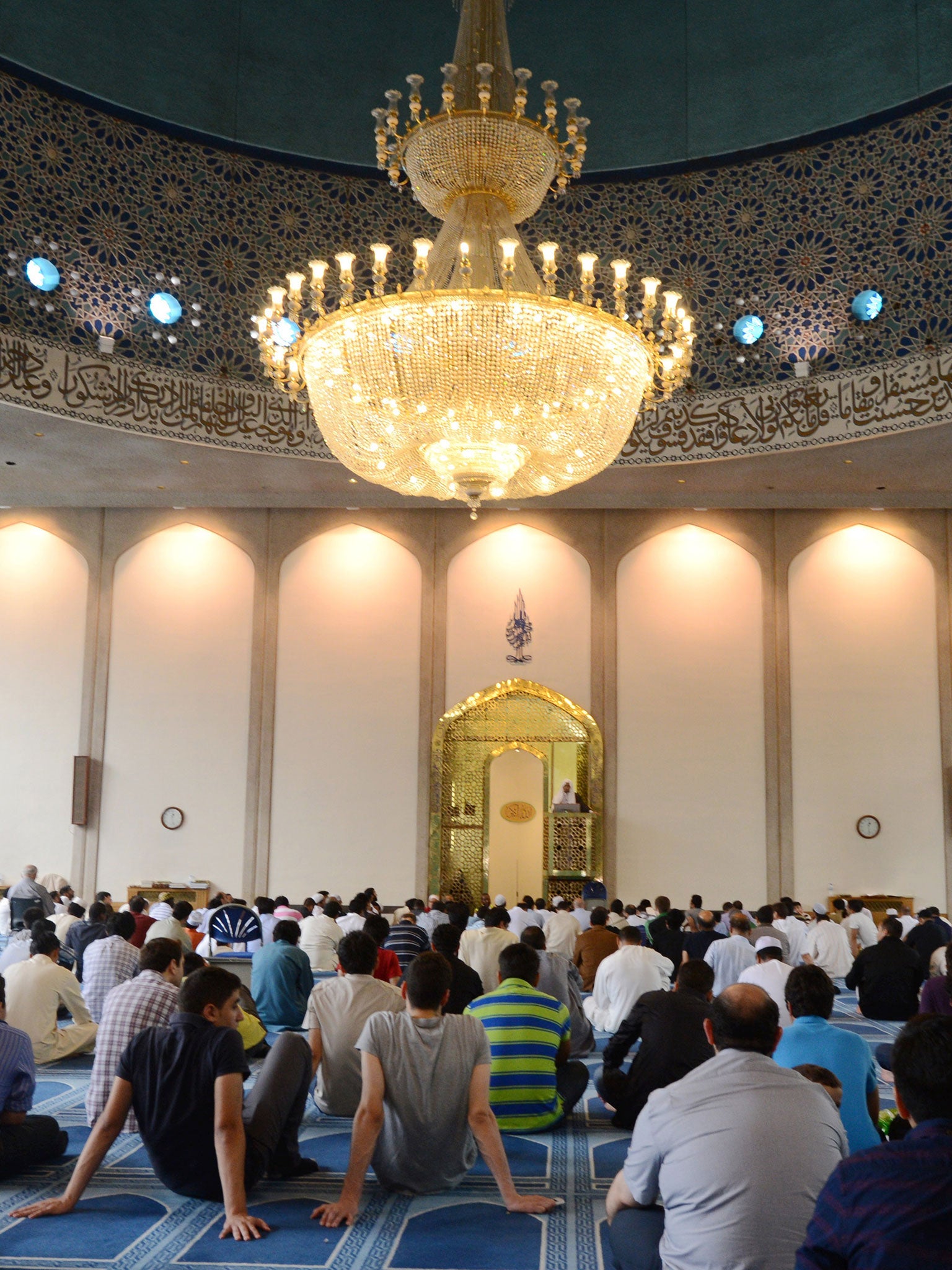Breaking bread and Islam myths
Joining Muslims as they end their Ramadan fast is a way to fight back


Your support helps us to tell the story
From reproductive rights to climate change to Big Tech, The Independent is on the ground when the story is developing. Whether it's investigating the financials of Elon Musk's pro-Trump PAC or producing our latest documentary, 'The A Word', which shines a light on the American women fighting for reproductive rights, we know how important it is to parse out the facts from the messaging.
At such a critical moment in US history, we need reporters on the ground. Your donation allows us to keep sending journalists to speak to both sides of the story.
The Independent is trusted by Americans across the entire political spectrum. And unlike many other quality news outlets, we choose not to lock Americans out of our reporting and analysis with paywalls. We believe quality journalism should be available to everyone, paid for by those who can afford it.
Your support makes all the difference.This weekend, mosques have been opening their doors to people of all faiths, and none, to share iftar, the meal Muslims have when they break their fast each evening during Ramadan. These events have been taking place in scores of community centres, living rooms, parks – even flash mobs – across the country.
It's all part of the "Big Iftar": a month-long opportunity to show Islam in practice. It comes at a time when myth-busting is more important than ever; research earlier this year showed that nearly half of all Britons thought that a clash of civilisations between the West and Islam was inevitable, and less than a quarter thought that Muslims were compatible with the British way of life. Regrettably, it proves what I said two years ago: Islamophobia has passed the dinner-table test.
Suspicion can spur some – a small, abhorrent few – into committing acts of hatred. We have seen a worrying spate of incidents over recent weeks and months, with bombs found in West Midlands mosques, arson attacks on a north London centre and a Kent school, all of which followed the tragic murder of Mohammed Saleem, who was stabbed to death in Birmingham as he walked home from evening prayers in April.
A person has been charged in connection with some of these incidents, so we can't comment on them. But these acts have been treated as acts of terrorism – and rightly so. This response, as Home Secretary Theresa May wrote last week, shows violence against Muslims will not be tolerated in this country. Meanwhile the Communities Secretary, Eric Pickles, wrote to Muslim organisations, outlining the Government's determination to tackle Islamophobia.
It follows our unprecedented crackdown on anti-Muslim hatred. We have set up a cross-government working group to advise us on the issue. We are the first government to fund an organisation to record anti-Muslim attacks and support victims. And we are warning of the consequences of hatred taking hold, by supporting the first Srebrenica Memorial Day. We are also demonstrating the positive contribution of Muslims to Britain, past and present, by commemorating the thousands from British India who fought for the Allied victory in the First World War.
We should not allow any let-up in our fight against hatred and prejudice. As the Prime Minister said after the horrific murder of Lee Rigby in May, our country will never give in to terror. This means we must stay true to our British tradition of making this country a place where people are free to worship without fear.
We can take inspiration from the Somali community of Muswell Hill, whose centre was razed last month. With the help of the Al-Khoei foundation, they held their own Big Iftar this weekend, to which they invited Mr Pickles. This is a community which has defied those who tried to create division; it has kept calm and carried on. And there couldn't be anything more British than that.
Baroness Warsi is Minister for faith and communities, and a member of the Prime Minister's extremism task force
Join our commenting forum
Join thought-provoking conversations, follow other Independent readers and see their replies
Comments